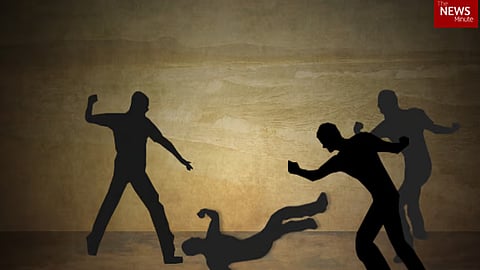

During the State level Vigilance and Monitoring Committee (SVMC) meeting held on April 11, 2023, a presentation by the Tamil Nadu government revealed alarming statistics. Notably, cases registered under the Prevention of Atrocities Act surged by around 400 cases from 2021 to 2022, even as the conviction rate for these cases plummeted from 11% in 2021 to a mere 9.59% in 2022, a stark contrast to convictions in IPC cases. The state government also noted that the number of identified atrocity-prone villages in Tamil Nadu had risen to 430 by 2022, surpassing the previous year's figures.
In specific crime categories, rape cases escalated from 8 in 2021 to 16 in 2022, while Protection of Children from Sexual Offences Act (POCSO) cases surged from 166 to 258 during the same period. During the meeting, VCK President Thol. Thirumalavan passionately urged the government to address these issues and take immediate action.
Despite the earnest efforts of the Tamil Nadu government, crimes against the Scheduled Caste (SC) community persistently escalate. This is primarily due to law enforcement agencies viewing caste atrocities as a social concern rather than a criminal offence.
Prior to the enactment of the Prevention of Atrocities Act in 1989, our country lacked a legal definition for the term ‘atrocity’. It was this Act that provided the initial definition of cruelty. Section 3 of the Act comprehensively lists 29 categories of offences and prescribes corresponding punishments. Over time, amendments were introduced to strengthen the Act. However, despite these efforts, crimes against members of the Scheduled Caste community continued unabated, underscoring the need to distinguish caste-based crimes from others.
In 1954, Dr. Ambedkar, while addressing the Rajya Sabha during the passage of a law related to untouchability offences, emphasised the core principles of criminal jurisprudence. He stressed that the primary purpose of punishment is two-fold: to deter the offender from repeating the offence and to prevent them from embarking on a criminal path. Dr. Ambedkar underscored that punishment is essential for both prevention and deterrence.
Pointing to the Indian Penal Code, Dr. Ambedkar highlighted a range of punishments it prescribes, including death sentences, imprisonment, property confiscation, fines, flogging, and imprisonment in reform camps. He noted that the Penal Code imposes death penalties for seven offences, transportation for 50, simple imprisonment for 21, and fines for 12 offences. In all other cases, rigorous imprisonment is mandated. Dr. Ambedkar emphasised the importance of not only defining maximum punishments but also establishing minimum prison sentences.
Crimes rooted in caste-based discrimination encompass various forms – from psychological distress caused by discrimination and insults to more severe offences such as physical harm, murder, and threats to life. Additionally, there exists a category of offences aimed at disturbing the peace and instilling fear within the Scheduled Caste people. As our understanding of crime evolves, so too must the definition of atrocities committed against Scheduled Castes. It is crucial that such offences be reclassified as acts of terrorism, warranting appropriate punishments.
The Government of India has officially defined terrorism as, "Terrorism involves the systematic use of violence against the public, motivated by political, religious, or ideological reasons, with the intent to kill, induce fear, sow division, or disrupt public peace." This definition closely aligns with the nature of caste-related violence.
When a crime is based on religion, it is classified as terrorism, resulting in severe punishments . However, if the same crime is based on caste, it is often treated with leniency or overlooked, exposing a glaring disparity in the administration of justice. This issue was raised in the Lok Sabha in 2019.
It is imperative for the Tamil Nadu government to proactively categorise hate crimes, including caste-based offences, as acts of terrorism. Perpetrators should be prosecuted under the Unlawful Activities Prevention Act (UAPA), providing a viable strategy to effectively combat caste terrorism.
Dr D Ravikumar is a Member of Parliament (Lok Sabha) representing Villupuram constituency in Tamil Nadu.
TNM and Newslaundry are ready to take you on a journey through the polls in Telangana, Mizoram, MP, Chhattisgarh, and Rajasthan, because we're stronger together. Click here to power our ground reports.